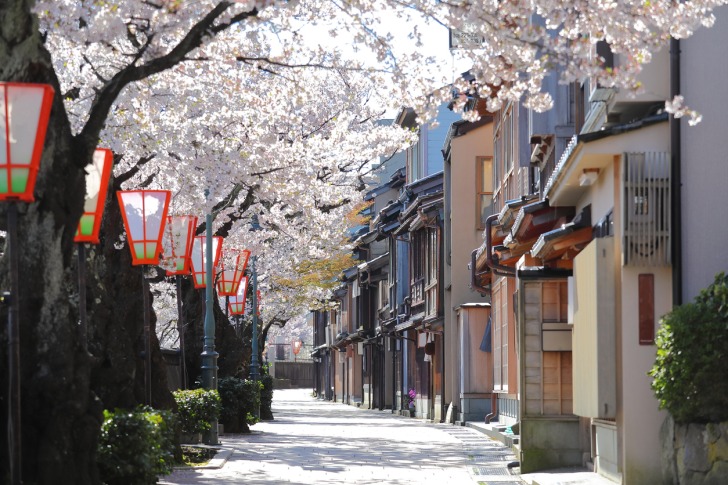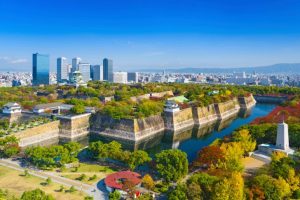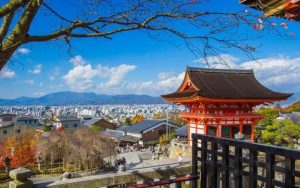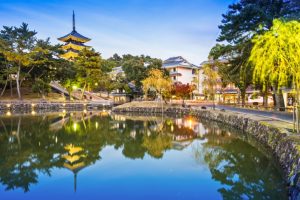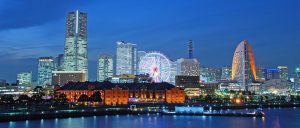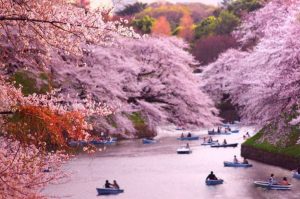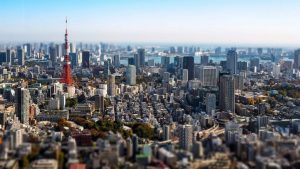 Japan : Safety by City
Japan : Safety by City
Japan - safety as a country When we think of traveling to Japan, we often choose to go to Kyoto, Tokyo, or Osaka.
However, the country has many beautiful destinations that are worth visiting.
One of the most interesting places is Japan’s historic city, Kanazawa.
Separated from the bustling city, Kanazawa is the ultimate trip into Japan’s past.
The streets are lined with architecture similar to the early Edo period.
Buildings boast a traditional elegant style, with many of them being in the same architecture as they were built.
In addition, Kanazawa is known for its lovely landscaped gardens.
Suppose you want to get deeper into Japan’s culture and immerse yourself in its rich history.
In that case, Kanazawa is one destination to put on your bucket list.
Before you travel, you’ll want to know if Kanazawa is safe.
Below, we’ve detailed everything you need to know so that you can stay safe on your trip and enjoy the many wonders this city offers.
Warnings & Dangers in Kanazawa

OVERALL RISK: LOW
Kanazawa is a relatively safe place with little crime. Although crime rates have slightly risen over the past three years, most are petty crimes. Overall, people feel safe traveling in Kanazawa and have no issues.

TRANSPORT & TAXIS RISK: LOW
Taxis are everywhere in Kanazawa because it's a popular tourist destination. There are a wide variety of taxi services, most of which are available day or night. There are virtually no reports of any issues with taxi rides in Kanazawa, and they are considered very safe.

PICKPOCKETS RISK: MEDIUM
Since it's a popular tourist destination, shady people often try to commit petty crimes, including pickpocketing. While the chances of it happening are slim, you should be wary when traveling to popular places. To prevent this, make sure that you don't leave any valuables in your pockets. Also, don't carry a lot of cash at one time. Use ATMs to withdraw money as needed.

NATURAL DISASTERS RISK: MEDIUM
Kanazawa is on the Noto Peninsula and is often struck by earthquakes. Generally, Kanazawa doesn't have too many natural disasters. However, it was recently stricken by an earthquake.

MUGGING RISK: LOW
Japan has little to no mugging risk, as they have a low violent crime rate. That being said, it can still happen. If you want to avoid being mugged, then use common sense. Stay away from sketchy areas, make sure you don't flaunt money or expensive items, and make sure to know where you are and who you're with.

TERRORISM RISK: LOW
Japan hasn't experienced a terrorism risk in many years. There used to be some concern back in the 1990s, but since then, there has been no risk of terrorism. The Ministry of Foreign Affairs Japan (MOFA) keeps the country, including Kanazawa, safe.

SCAMS RISK: MEDIUM
Kanazawa is less frequented than other places in Japan. There are still sketchy areas where scams will occur. This often happens in tourist areas, as companies may inflate prices or try to get you to sign up or buy items you won't need. Some places will add on charges simply because you're foreign.

WOMEN TRAVELERS RISK: LOW
Japan is one of the safest places for solo women to travel. The country does have some issues with women's safety, but often, the locals will leave foreign women alone. However, you should still be careful, as there are still areas that might be unsafe for women. If there are any issues, you can easily find police to report suspicious people to or get help.

TAP WATER RISK: LOW
Tap water in Kanazawa, as in almost all places in Japan, is safe to drink. The water in older buildings may be a bit questionable, but any modern home will have safe, clean water.
Safest Places to Visit in Kanazawa
Pretty much anywhere in Kanazawa is safe to visit.
However, the best places to travel to are tourist locations.
There are many to choose from, including parks, historical landmarks, and museums.
Some of the most popular places to visit are the Higashi Chaya District, Kanazawa Castle, and the Omicho Market.
Some also enjoy the 21st Century Museum of Contemporary Art, the D.T. Suzuki Museum, and the Nagamachi District.
For more historical places, some enjoy Oyama Shrine or the Castle Grounds.
When walking around Kanazawa, you’ll be safe.
The theft rate is the only main issue.
Often, petty thieves will target tourists because they know they will have money or other valuables on them.
To avoid this, be sure to keep track of your belongings and don’t flash a lot of cash.
If you’re carrying a wallet, consider placing it in a bag rather than your pocket.
Essentially, most places in Kanazawa, Japan, are safe at all times, day or night.
Even female solo travelers have stated that they feel safe being by themselves.
So, it doesn’t really matter where you travel as long as you’re aware of your surroundings.
Places to Avoid in Kanazawa
If you’re traveling close to 2024, you’ll likely want to avoid a few specific areas.
A recent earthquake caused devastating damage to Kanazawa.
The town was 100 kilometers south of the earthquake’s epicenter, so there was a decent amount of damage.
Safety Tips for Traveling to Kanazawa
- Get an IC Card – Whether you’re in Kanazawa or traveling to other areas of Japan, you’ll want to get an IC card. IC cards are integrated smart cards that enable a person to pay for transportation via their card. This is a good option when traveling, as you’ll be able to pay quickly, and it works at most subway stations.
- Keep Cash On You – Japan mainly uses cash to pay for things, and many areas only accept cash. It’s best not to rely only on card payments, especially if you’re traveling to an area that isn’t familiar to tourists. Most of Kanazawa allows card transactions, but certain restaurants or stalls may refuse payment.
- Know the Disaster Warnings – Kanazawa is impacted by earthquakes. If you’re traveling to the area, it’s best to know the disaster warnings. This can help potentially keep you safe if one does hit. Japan generally uses warning alarms or sends them via phone. However, broadcasts will also appear on the radio or TV.
- Know Basic Phrases – Fewer people in Kanazawa speak English, which can hinder your communication ability. While some can rely on translation apps, knowing the basics is best. Learning some Japanese, such as where is the restroom, how do I get to __? etc., can help you navigate.
- Know Transportation Schedules – Unlike other major cities in Japan, Kanazawa doesn’t have late-running transportation. Instead, a lot of public transportation will shut down for the night, which can cause you to become stuck. Knowing the last train, when stores close, etc., can help you avoid this situation.
- Utilize Helpful Apps – When traveling to Kanazawa, you’ll want to download some important apps. These can include the Japan Transit Planner, Japan Travel—Route, Map, Guide, and Google Maps. Also, download the Safety Tips app, VoiceTra, and Travel JAPAN Wi-Fi.
- Use Common Sense – even though Kanazawa has a low crime rate, that doesn’t mean it doesn’t happen. Common sense can help you avoid any sticky situations. This includes avoiding dim areas and walking alone. If you walk alone, keep to areas that are well-lit and have more people.
- Organized Crime – While you may not see any organized crime on your trip, it does still happen. The Yakuza and other gangs are still active in Japan but rarely make themselves known. If you’re traveling to Kanazawa, you’ll want to stay polite.
- Xenophobia – Tokyo and other major cities often are used by foreigners. While Kanazawa is still a popular tourist destination, some locals may be xenophobic. Xenophobic means prejudice against people from other countries.
- Beware of Extra Charges – When traveling, many places will add extra fees due to you being a foreigner. Often, these places will not want to seat you or serve you because of your heritage. If this is the case, avoiding these areas and conflict is better.
So... How Safe Is Kanazawa Really?
Kanazawa is one of the safest places in Japan, with low crime rates.
If you’re traveling, then you won’t experience any issues.
Many people travel to Kanazawa each year and rarely encounter any petty crimes.
The biggest issue tourists may encounter is that some areas are more xenophobic than Tokyo or Kyoto.
While many tourists still come to the area, it’s not as common.
Those unfamiliar or used to tourists or foreigners may not be as friendly.
That being said, Kanazawa is relatively safe, and even female solo travelers feel at ease.
Just be sure to use common sense, as the crime rate isn’t zero.
If anything happens, contact the local police, as they can help.
How Does Kanazawa Compare?
| City | Safety Index |
|---|---|
| Kanazawa | 83 |
| Tokyo | 80 |
| Osaka | 79 |
| Kyoto | 83 |
| Hiroshima | 68 |
| Nagasaki | 96 |
| Sapporo | 92 |
| Cordoba (Argentina) | 61 |
| Toronto (Canada) | 81 |
| Melbourne (Australia) | 80 |
| Montreal (Canada) | 81 |
| Sydney (Australia) | 80 |
| Santiago de Chile (Chile) | 71 |
Useful Information

Visas
When visiting Japan, you will need a visa to enter the country. To get a visa, you will first need to have a passport. Once you have that, you can apply for a travel visa. Japan has many different types of visas, and you'll need to know which one to apply to. If you're going to work, you must get approval before moving there.

Currency
In Kanazawa, the official currency is the yen. When traveling, you'll want to keep yen in cash on hand, as many places don't accept cards. You can head to the airport, bank, or convenient ATM machines to withdraw cash from your account. Just be sure not to carry too much on you, as this could pose a risk.

Weather
Kanazawa's weather tends to average around 72 degrees Fahrenheit. The summer is warm and short, while the winter is cold and windy. Occasionally, Kanazawa gets rain, but it is mostly cloudy. During winter, you'll want to wear winter clothes, as it's known to snow a lot in Kanazawa. The coldest it gets during winter is around 34 degrees Fahrenheit.

Airports
The closest international airport to Kanazawa is Komatsu Airport. The airport is in Komatsu and is a 40-minute bus ride away. Alternatively, you can use a taxi service to get to Kanazawa.

Travel Insurance
Travel insurance isn't mandatory but is often recommended to visitors. The price of travel insurance varies depending on several factors, such as age, length of stay, policy, etc. In general, plan to allocate at least 5-10% of your budget to travel insurance.
Kanazawa Weather Averages (Temperatures)
Average High/Low Temperature
| Temperature / Month | Jan | Feb | Mar | Apr | May | Jun | Jul | Aug | Sep | Oct | Nov | Dec |
|---|---|---|---|---|---|---|---|---|---|---|---|---|
| High °C | 7 | 7 | 11 | 17 | 22 | 25 | 29 | 31 | 27 | 21 | 16 | 10 |
| Low °C | 1 | 1 | 2 | 7 | 12 | 17 | 22 | 23 | 19 | 12 | 7 | 3 |
| High °F | 45 | 45 | 52 | 63 | 72 | 77 | 84 | 88 | 81 | 70 | 61 | 50 |
| Low °F | 34 | 34 | 36 | 45 | 54 | 63 | 72 | 73 | 66 | 54 | 45 | 37 |
Japan - Safety by City
| City | Safety Index |
|---|---|
| Hiroshima | 68 |
| Kanazawa | 83 |
| Kyoto | 83 |
| Nagasaki | 96 |
| Nara | 88 |
| Osaka | 79 |
| Sapporo | 92 |
| Sendai | 88 |
| Tokyo | 80 |
| Yokohama | 87 |
